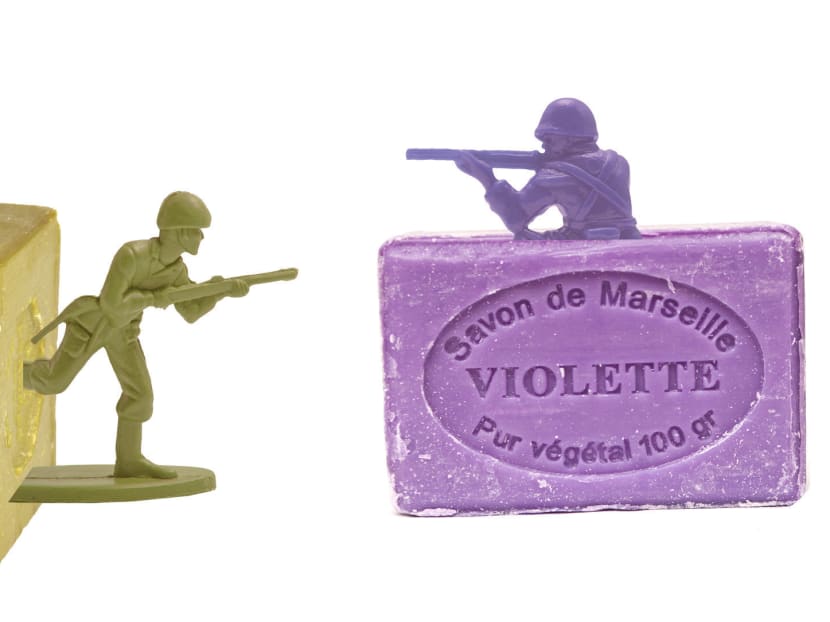In France, a squabble over recipe of Marseille soap
NEW YORK — Marseille soap, or Savon de Marseille, is as French as wine and cheese, with a history that dates from the Middle Ages. Frenchwomen swear by the crude square blocks, which they use as a natural skin cleanser and, in a pinch, as anything from a toothpaste substitute to a moth repellent.

A battle has erupted between two soapmaking factions over exactly what the modern rules should be for what constitutes a true Marseille soap. Illustration: The New York Times
NEW YORK — Marseille soap, or Savon de Marseille, is as French as wine and cheese, with a history that dates from the Middle Ages. Frenchwomen swear by the crude square blocks, which they use as a natural skin cleanser and, in a pinch, as anything from a toothpaste substitute to a moth repellent.
In recent years, though, cheap Chinese and Turkish knockoffs have been flooding the market, and the soapmakers of Marseille are rallying to protect their product’s reputation. They banded together recently to ask the French government to grant them a label of authenticity, to distinguish the genuine stuff from the imitators.
And that is where the trouble really began.
The original Marseille soap had a specific olive-oil-based recipe that was considered so sacred that Louis XIV protected it with a royal edict. But a battle has erupted between two soapmaking factions over exactly what the modern rules should be for what constitutes a true Marseille soap.
On one side are the soapmasters, based mainly in the Mediterranean port that gave the soap its name. They say that the label of authenticity should go only to products made strictly by the original Louis XIV-approved recipe. It’s quite a process, involving heating a mix of soda ash, seawater and olive oil in large cauldrons for several days, and then cooling it in open pits. The finished soap is dun-green and odourless.
On the other side are a group of 12 large companies, including L’Occitane, a global chain retailer of body and fragrance products. They want the government to certify their recipe, which allows the use of cheaper vegetable oils along with additives and perfumes to produce scented soap bars in a rainbow of colours.
“The ancient recipe is outmoded,” said Emilie Grangeon, the general secretary of the Association of Makers of Savon de Marseille, which represents the companies. “We should be able to improve the quality.”
Each side is refusing to talk to the other, while trying to convince the government that its recipe should win. The government, for its part, is using its own time-tested method to delay a decision: It has set up an investigative panel that is to deliver a recommendation in September. NEW YORK TIMES





